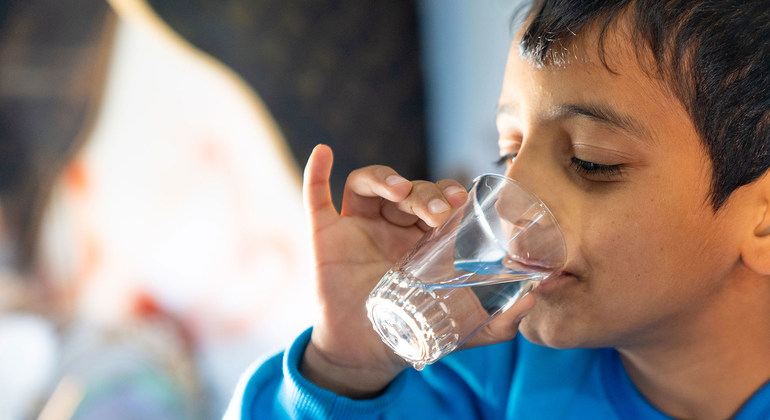Latest data from the World Health Organization (WHO) and UN Children’s Fund (UNICEF) reveals that three in 10 people worldwide could not wash their hands with soap and water at home during the COVID-19 pandemic.
“Handwashing is one of the most effective ways to prevent the spread of COVID-19 and other infectious diseases, yet millions of people across the world lack access to a reliable, safe supply of water”, said WHO Director-General Tedros Adhanom Ghebreyesus.
Progress made
The Joint Monitoring Programme report, Progress on household drinking water, sanitation and hygiene 2000 – 2020, did, however, offer some good news on universal access to water, sanitation and hygiene services (or WASH for short).
Between 2016 and 2020, it showed that access to safely managed drinking water at home, increased from 70 to 74 per cent; sanitation services went from 47 to 54 per cent; and handwashing facilities with soap and water, rose from 67 to 71 per cent.
And rather than sewer connections, last year for the first time, more people used pit latrines, septic tanks and other improved on-site sanitation to effectively contain and treat waste.
“Despite our impressive progress to date, to scale-up these lifesaving services, the alarming and growing needs continue to outstrip our ability to respond”, said UNICEF Executive Director Henrietta Fore.
To maintain progress, the two UN agencies underscored the need for governments to adequately support safely managed on-site sanitation, including faecal sludge.
The study also made clear that if current trends persist, by 2030 billions of children and families would be left without life-saving WASH services.
It notes that still only 81 per cent of the world’s population would have access to safe drinking water at home, leaving 1.6 billion without; just 67 per cent would have safe sanitation services, leaving 2.8 billion in the lurch; and only 78 per cent would have basic handwashing facilities, leaving 1.9 billion adrift.
“Investment in water, sanitation and hygiene must be a global priority if we are to end this pandemic and build more resilient health systems”, Tedros stressed.
Inequalities prevail
The report also noted vast inequalities – with vulnerable children and families suffering the most.
At the current rate of progress, for least developed countries (LDCs) to access safely managed drinking water by 2030, the study spelled out that there would need to be a ten-fold increase.
“Even before the pandemic, millions of children and families were suffering without clean water, safe sanitation, and a place to wash their hands”, said the UNICEF chief. “The time has come to dramatically accelerate our efforts to provide every child and family with the most basic needs for their health and well-being, including fighting off infectious diseases like COVID-19.”
Spotlighting women
For the first time, the report also presented emerging national data on menstrual health.
In many countries, it showed a significant proportion of women and girls are unable to meet their menstrual health needs.
And disparities are significant among vulnerable groups, such as the poor and those with disabilities.




